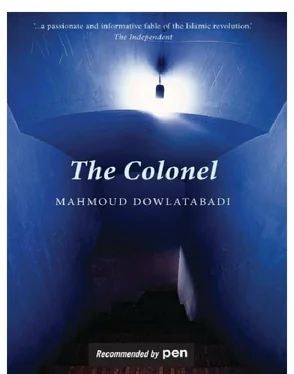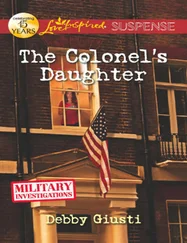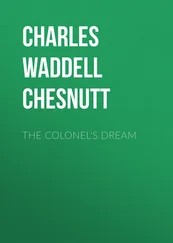“the colonel told me to show him how deserving I was. I said to him, ‘give me forty-eight hours, colonel,’ and he gave me till the end of the week. On the Saturday morning I produced full reports on all the six teachers who were doing commentaries on Nima Yushij and George Politzer 45and put them on his desk, to show him what sort of man I was. Six months later they were behind bars. That showed them. I wanted to get their attention, and I certainly did. I wanted to show them that they shouldn’t judge people by their lack of inches and excess of nose, and I did. Then I ordered a pair of shoes with built-up heels and decided to get a nose job. But the office wouldn’t let me have one. They said that if I had one, I wouldn’t look intimidating enough. Then I realised that everything in this
a Catholic school in Tehran, which may be why there is such a biblical flavour to Dowlatabadi’s writing. world has a place and that I had the most perfect nose for my chosen job. But this revolution has made me worry about it now, and I need to get it done. So, if I live long enough, the next time I come back here you won’t see this surplus lump of meat and cartilage squatting on my face, because I’m thinking of having more than half of it cut off.”
“Your cigarette butt, Khezr Javid, let me take it.”
“I’ve made myself pretty clear, haven’t I? Here, put it out.”
“Yes, crystal clear. When you used to interrogate me, I always thought you were very straight, and even very courageous. But why did you turn those qualities of yours against the people? You must be afraid now, surely?”
“You’re a bloody fool.” Getting no answer from Amir, he went on: “I’ve killed a lot of people.”
He was silent for a while, staring obliquely into Amir’s face, waiting for his words to flow like toxin through his veins. He continued:
“…But a coward cannot kill in cold blood. A coward usually talks about humanity and morals, to hide his fear behind such waffle. Such people are just chicken. But me… I’ve got courage. I’ve only been frightened once in my life, when I began to worry that those teachers’ fear might take root in me and suck me in. That’s when I went to see the colonel. So, I overcame my fear of the secret police by becoming one myself. You see, by surrendering to my fear before it got the better of me, I ended up beating it. After that I was never afraid again, only excited. When I knocked on the colonel’s door I knew what I was doing; I was giving myself up to the vocation of torture and death, so I had to be brave.
“Are you asking me why I’m still carrying on? You’re so naïve, you’ve got no idea. What should I do, then: give myself up? Make a public confession and repent of my sins? Where, who to, and when exactly? And you expect me not to be brave? If I’m not brave, I’ll be killed all the sooner. If I’m afraid, I’ll die a hundred deaths before they kill me! Quite a few of the lads lost their nerve when they heard the first clarion call of the revolution and then cocked everything up for themselves for lack of balls. Chickenshit cowards! So I have to be brave, because I want to stay alive and I don’t want to get my throat cut. No, if you were me you wouldn’t want to get killed and you — as I well know — would definitely not want to be in my shoes! Do you hear all that racket outside?”
Yes, he could hear it all right. Had Masoud come back home? Or had Mohammad-Taqi gone out into the street? Would he smell blood, lose his nerve and charge down into the basement and shoot Khezr?
He could not help looking at Khezr’s holster resting on the left side of his stomach, and then he looked at the revolver. At that very moment, Khezr’s right eyelid twitched open and shut in his mask-like face, and his hand moved to grip the butt of his revolver. Amir decided to lie down, have a cigarette and stare up again at the bulging ceiling, so as not to have to look at the revolver.
“If I’d passed the entrance exam for the officer training school, then maybe everything would have been different. But I failed. You had to be over five foot seven. It was fourteen years before I faced that selecting officer again, who meanwhile had become a brigadier-general. That was the day I went personally to staff headquarters to arrest one of his subalterns, a young second-lieutenant. I twisted his little finger and dragged him off to the general’s office, hurled him to the floor, looked the general straight in the eye and then kicked that second-lieutenant, who was over five foot seven, hard on the shins, and told the useless lanky bastard to get up!”
They are banging on the basement door and Khezr and I can hear heavy footsteps coming down the stairs. We sit up together and I can feel his hand shaking on his pistol holster. I am sure it is only Mohammad-Taqi at the door and my heart is exploding in my chest. I glance at Khezr and he has gone white as chalk, as if he has just walked into a trap. His face has gone purple from all the arack. I can feel him struggling to control himself.
“Brother!”
I am getting up — now — and I am putting on my shoes and going out. Mohammad-Taqi is standing at the top of the stairs and, as I am pulling the door shut behind me, two or three volleys of shots shatter the silence in the alleyway outside, and I think I can see the colonel’s face through the window. I am stunned by Mohammad-Taqi’s confusion. He is about to say something, which I know Khezr is going to hear too:
“Did you hear that?”
I did hear it, but Mohammad-Taqi wanted a reply. What needed to be said had not been said. I take him by the elbow and steer him up the stairs to Parvaneh’s room. She has come in without my noticing it and is tearing up sheets for bandages. I see a cardboard box beside her bed full of medicines and… I sit Mohammad-Taqi down on a chair beside the bed and I can see that the vein across the middle of his forehead has swollen up and that he is looking down so that I can’t see his bloodshot eyes. I pace up back and forth for a bit and then stand in front of Mohammad-Taqi: “ I beg you to …” but Taqi does not let me finish. He looks up, and this is the first time that he looks into my eyes like this and he says, “Masoud is out on the street, he is in trouble and your guest’s partners in crime are shooting people; can’t you hear them?”
“Yes, I can. And I get your point!”
“My point doesn’t matter. You need to know what the people on the street are saying.”
Amir didn’t respond. He knew that was the only way to calm his brother down. And it worked; Mohammad-Taqi became more mollifying:
“I’m sorry I shouted at you, brother. I was angry.”
“I know, it’s all right. But please try and see my position and put up with it just for tonight.”
But Mohammad-Taqi had already dashed out of the room in response to a frantic banging on the outside gate. Parvaneh appeared, clutching her makeshift bandage strips. She was so bound up in her work that she seemed not to notice Amir. Amir ran out onto the verandah to see if his young brother Kuchik Masoud had come home. Yet it was not little Masoud who ran into the yard, but Abdullah, Habib Kolahi’s son. Mohammad-Taqi shut the gate behind the young man and pressed him for news of Masoud: “Kuchik, Kuchik… do you know what’s happened to him?”
“They went off into the forest. 46Kuchik and his lot followed them. I’m slightly…”
“Have you been wounded?”
He had been. Mohammad-Taqi led him past the pond towards the verandah steps. Meanwhile, Amir had disappeared into the basement, aware all the time of the colonel looking at him through the window. He seemed to be exultant:
“My children… ah, my children!”
Читать дальше












